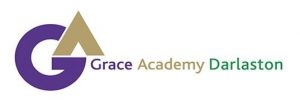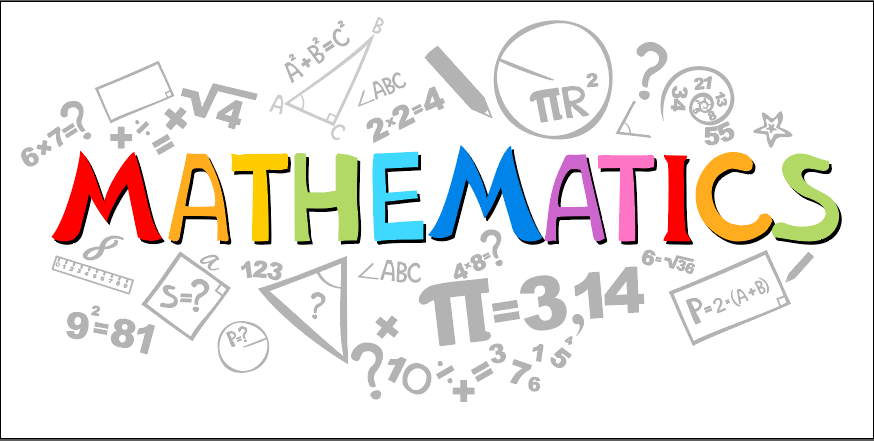The Intent for Mathematics at GAD
At Grace Academy Darlaston, we are committed to developing reasoning and problem-solving skills outlined in the national curriculum to better equip our students for the next stages in their education. We have developed departmental strategies to aid in recall and retention of topics and skills. This is evident in the use of students’ personal learning checklist (PLC) within their books.
The rationale behind our curriculum design includes encouraging students to learn and recall information. In order to achieve this, we have constructed a spiral curriculum. The five main areas of number, algebra, ratio, geometry and data are taught in a cycle. Each time students revisit an area, they are exposed to more complex content, building on what they have already learnt. We ensure the level of challenge is high enough for the most able, with scaffold and support available for students who need it. To further support learning and transition, each curriculum has a set of bespoke starters planned to recall and embed five key topics from the previous half terms’ curriculum.
KS3
Our KS3 students follow a 3-tiered spiralled curriculum (Pi, Theta, Delta). All students complete KS3 content, but the pace at which they do this and the depth of understanding differs between the three tiers. We are aware of the emerging needs of our Year 7’s in the current climate; to combat this, we interleave sections of the KS2 national curriculum whilst introducing KS3 content. To further support this, we have created the Year 7 “Nurture Group”, which focuses on catching up from KS2 skills whilst still introducing KS3 content so the pupils do not fall behind their peers.
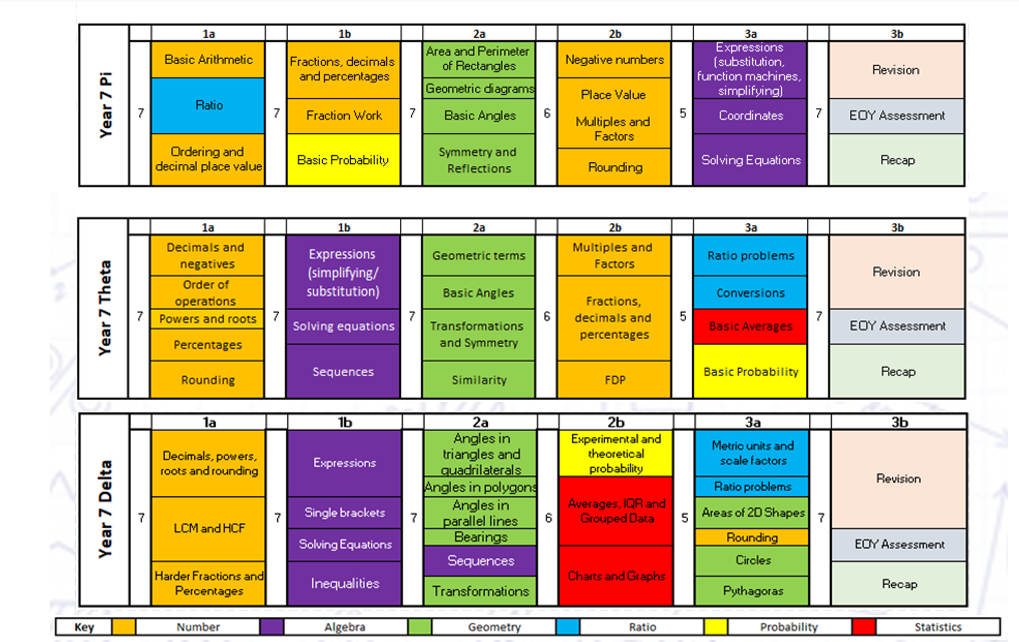
Helpful Maths sites
https://sparxmaths.com/ Weekly homework tasks set with have supporting videos and instant feedback.
https://www.mymaths.co.uk/ Personalised tasks set, can access all tasks which have supporting videos and lessons, instant feedback.
https://teams.microsoft.com/ Lessons and revision resources. Consult with classmates.
In Year 8, students will consolidate their knowledge from the Year 7 curriculum and begin to apply concepts to other aspects of mathematics. Finally, in Year 9, students forge greater connections between the different strands in maths, allowing them to revisit and embed techniques acquired from prior learning. Students on the Delta curriculum begin to explore some KS4 topics, providing them with the opportunity to explore higher-level content.
Throughout the three years, we explicitly link topics throughout to add greater depth to their understanding of maths. Students will also implicitly make these connections, allowing them to apply this to different strands of the curriculum: algebra, geometry, and number in particular.
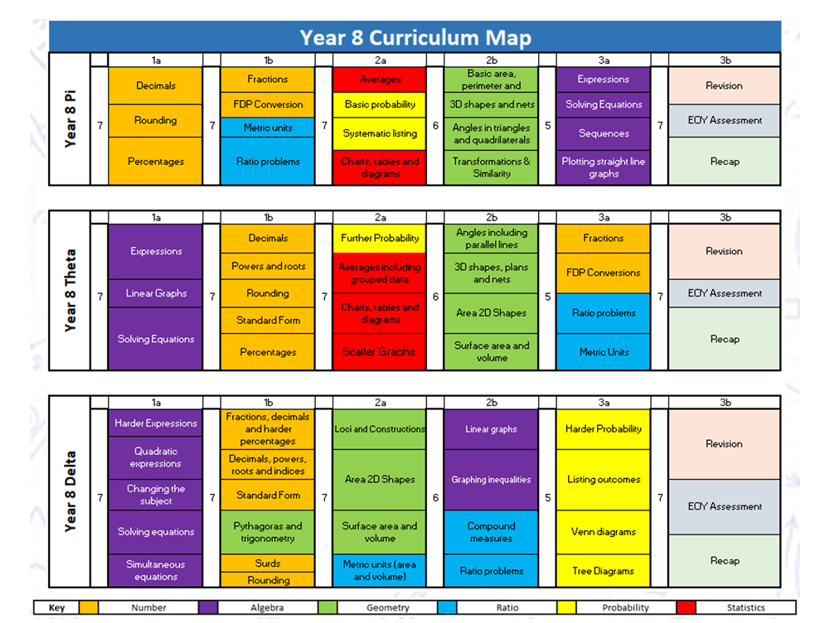
Helpful Maths sites
https://sparxmaths.com/ Weekly homework tasks set with have supporting videos and instant feedback.
https://www.mymaths.co.uk/ Personalised tasks set, can access all tasks which have supporting videos and lessons, instant feedback.
https://teams.microsoft.com/ Lessons and revision resources. Consult with classmates.
Year 9
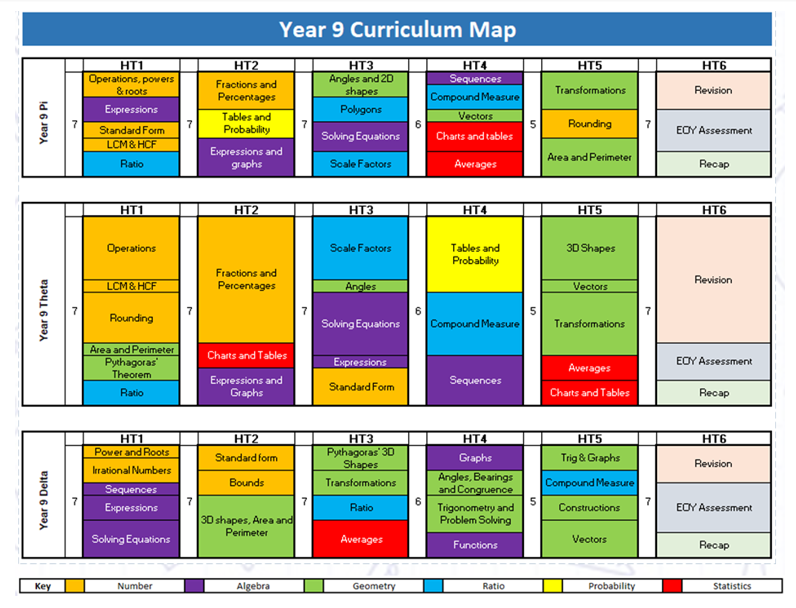
Helpful Maths sites
https://sparxmaths.com/ Weekly homework tasks set with have supporting videos and instant feedback.
https://www.mymaths.co.uk/ Personalised tasks set, can access all tasks which have supporting videos and lessons, instant feedback.
https://teams.microsoft.com/ Lessons and revision resources. Consult with classmates.
KS4
Year 10 and 11 then follow the KS4 curriculum which is broken down into the two tiers – Foundation and Higher – to mirror the exam boards. Students will follow the curriculum which builds on topics learnt at KS3. The Pi scheme of work builds the foundations of skills needed in order to successfully achieve the Foundation tier. Delta achieves the same, but for the Higher tier. We have designed the Theta scheme in such a way as to allow students to be able to access both tiers, giving us more flexibility to unlock their full potential.
Our full five-year curriculum is built to firstly learn and master skills in isolation, before then developing them to the point where they are able to apply these skills in different contexts. The Edexcel curriculum expects students will amalgamate this knowledge into multi-topic problem solving questions; this is something that we explicitly train our pupils to achieve.
This can also be transferred into the real world – no matter what path that pupil chooses to follow post Year 11.
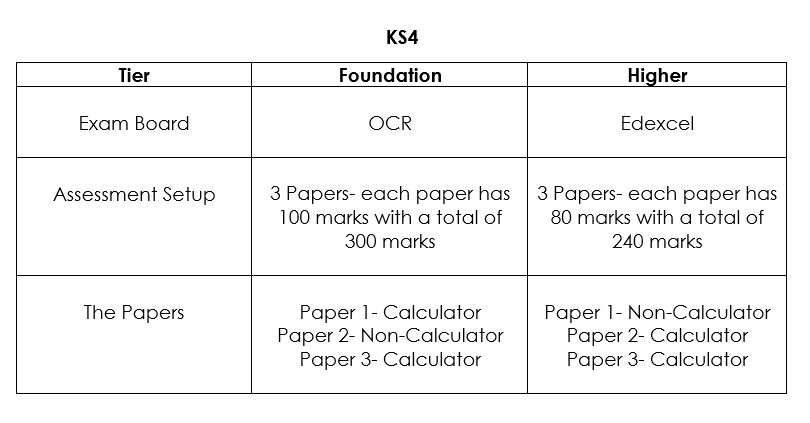
Year 10
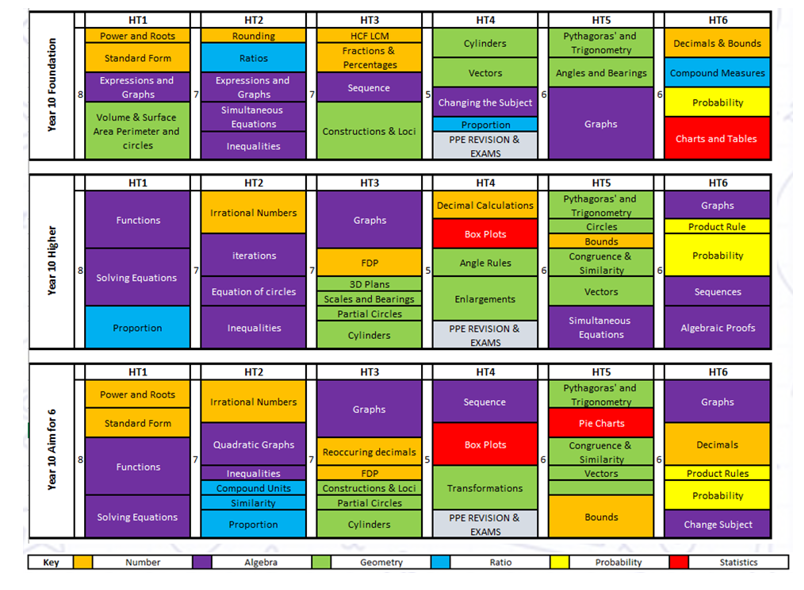
Year 11
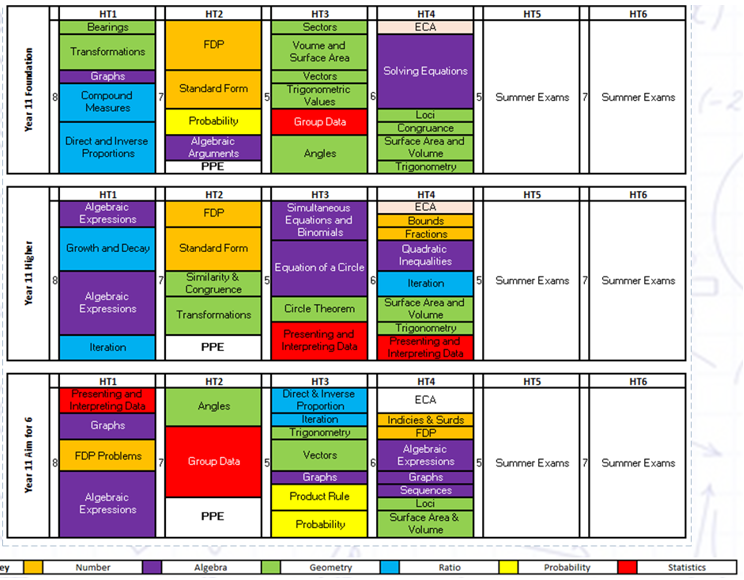
Helpful Maths sites
https://www.onmaths.com/ Practice exam papers and get instant feedback.
https://www.mymaths.co.uk/ Personalised tasks set, can access all tasks which have supporting videos and lessons, instant feedback.
https://www.bbc.co.uk/bitesize Revision notes and mini tests for each syllabus.
https://www.thenational.academy/ Video lessons on all topics.
https://teams.microsoft.com/ Lessons and revision resources. Consult with classmates.
https://corbettmaths.com/ Videos for each topic, textbook questions with answers, exam style questions with answers.
https://www.mathsgenie.co.uk/ Exam Questions ordered into topic and grade. Past papers and other revision resources.
https://sparxmaths.com/ Students complete homework Tasks on Sparx, which builds retention from previously taught topics. Students can click the independent learning on the left-hand side to do additional tasks.
KS5
Those pupils who have developed a real love for Mathematics have the opportunity to further this in our Post-16. The curriculum is heavily based on the content learnt in KS4, but expands on this further.
Pupils will get the chance to explore algebra, calculus, trigonometry, mechanics, and statistics. This goes beyond the ability to just do maths, this makes them comprehend what they are learning, developing analytical, evaluation, and communication skills. These skills can then be transferred into maths-related further education.
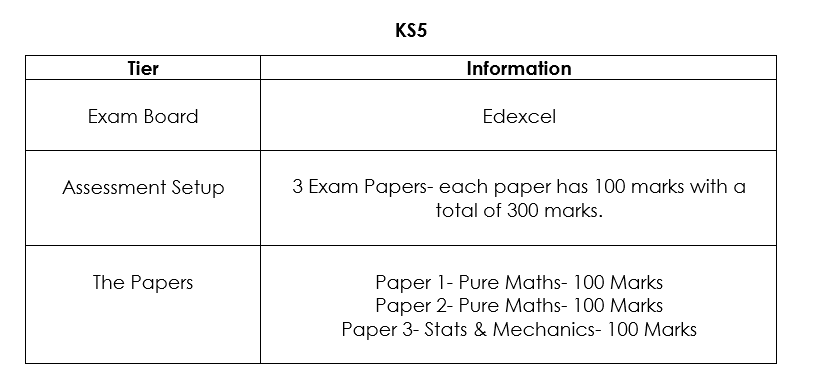
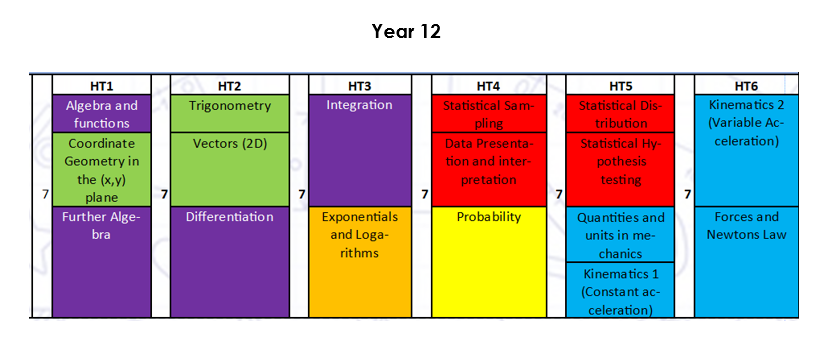
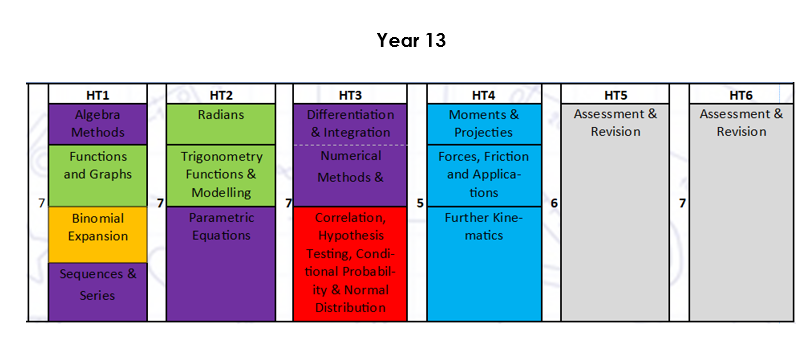
Helpful Maths sites
https://my.integralmaths.org/integral/core/login/index.php
https://www.revisely.co.uk/alevel
https://www.bbc.co.uk/bitesize
https://www.thenational.academy/
Extra-curricular
Our curriculum goes far beyond what is taught in lessons, we offer individuals to take part in the UKMT. We work with our highest achievers in aspiring them to be the best that they can, promoting A-Level maths and STEM professions. To further facilitate this, we offer STEM club where students are able to apply their classroom maths to real world problems. Our enrichment sessions are bespoke, and aim to enable students learning by revisiting topics they struggled with previously and provide that extra bit of support to achieve their full potential.
We are dedicated to ensuring that children become resilient individuals who are able to recognise the relevance of Maths outside of the school setting. Every year group has a wealth of lessons accessible through Microsoft Teams, where they are able to access missed content, as well as revise and improve on struggling topics. On top of this, every student has a My Maths login where they are able to access homework tasks and revision content.
We aim to mirror our curriculum in line with the Grace Values of the school, by ensuring that every student is in a safe, fair, and respectful environment – not just learning towards a final exam, but also showing our ambition for them to show a love of Maths and showcase their ability to its’ full extent. We aim to develop a growth mindset towards mathematics and encourage a curiosity about the subject so all students believe they can be successful through hard work and effort, breaking the stigma of ‘I can’t do Maths!’.
